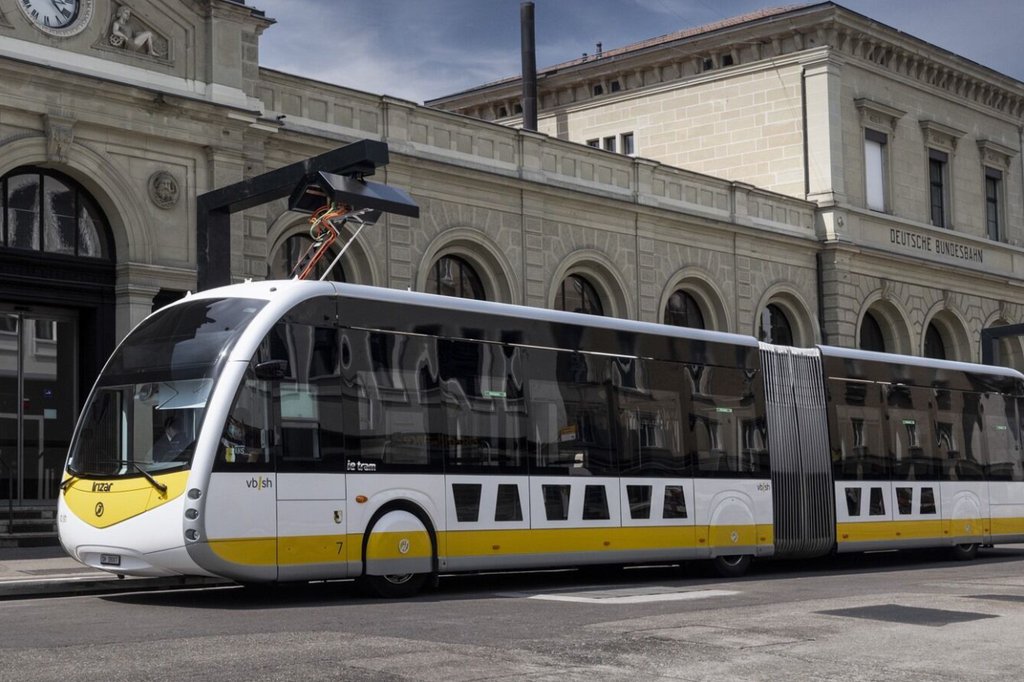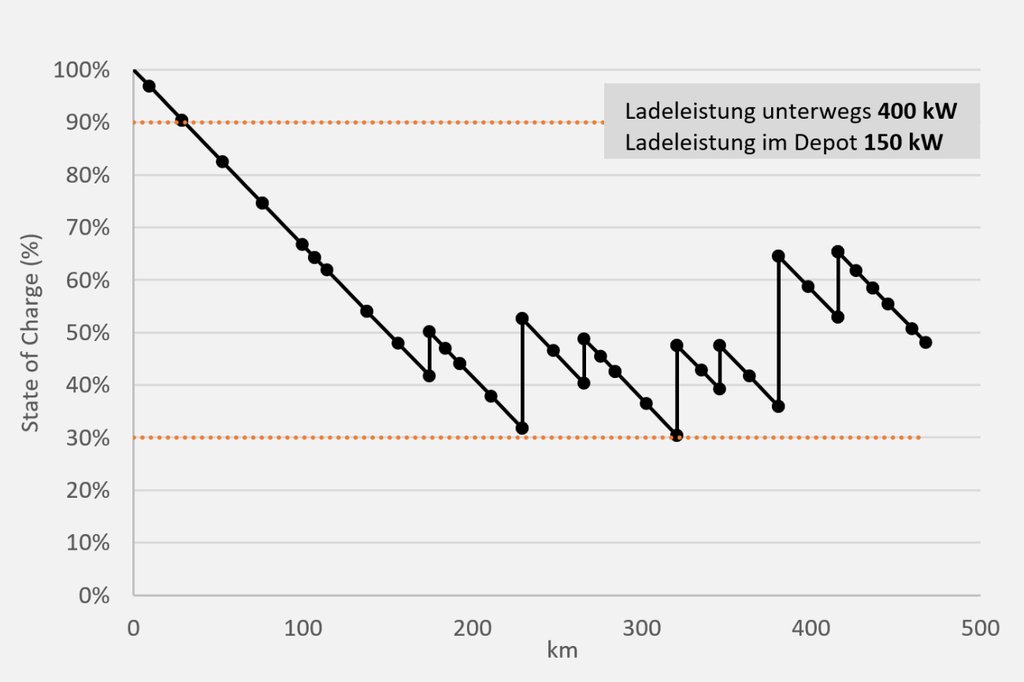All the buses in the city of Schaffhausen will soon be entirely electric. Next, the plan is for all buses in the region to follow suit and become fossil free. But how? INFRAS conducted a feasibility study for the canton of Schaffhausen. The study also took into account how service and infrastructure will be impacted.

The canton of Schaffhausen is working on making transport more environmentally friendly, especially its public transport services. This objective is included in its climate strategy. The buses in the city of Schaffhausen will be fully electric by 2028. The next step will be to transition the buses on Verkehrsbetriebe Schaffhausen’s (vbsh) regional routes to alternative drive systems too. With this objective in mind, INFRAS conducted a feasibility study on the canton’s behalf.
Ranking fossil-free technologies, with a clear winner
One aim of the study was to show which alternative drive systems are available and to analyse their pros and cons. The criteria for the drive system technologies were that they had to be based on renewable energy sources, energy efficient and low in emissions. Overall, it was clear how the various different technologies ranked: battery-electric buses fulfil the given criteria best.
Changing the buses also impacts infrastructure
Another key point in the feasibility study was defining the strategic principles for transitioning the current buses to battery-electric buses, such as the charging infrastructure needed. This involved considering questions like what charging system would make sense here? How should the infrastructure be organised and on what scale must it be to ensure it meets vbsh’s needs on its regional routes? Can charging be planned in such a way that the current timetable and the interconnected routes (all journeys the bus needs to complete back to back) can be kept the same?
A basis for choosing the right technology and initiating a call for tenders
In comparison to bus transport in the city, the electrification of regional routes is more challenging as they cover longer distances. For the feasibility study, INFRAS used the e-bus tool it has developed to be able to compare the various different drive systems available for e-buses. In particular, it modelled the implementation of battery-electric buses – which can be charged at the depot as well as while on the road. The results of this formed the basis for the scale of the decentralised charging infrastructure.

Scale of the charging infrastructure for battery-electric buses at the depot and on the road using a sample regional bus route. (Source: INFRAS’s e-bus tool)
The study was used by the canton of Schaffhausen and vbsh as a decision-making tool for transitioning the regional buses to a battery-electric drive system. The report also served as the basis for the public procurement of the necessary electric buses and charging infrastructure.
More information (in German)
- Article in vbsh’s Fahrzeit magazine (from page 5)
- vbsh press release
- vbsh dossier on electrification
More INFRAS articles on transport electrification (in English)
- The path to a climate-neutral fleet of heavy duty vehicles
- Electric vehicles: facts and figures on batteries throughout their life cycle
More INFRAS articles on regional transport planning (in German)

